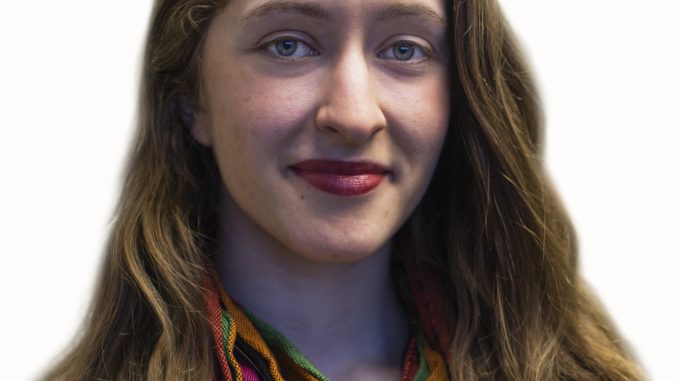
 Professor Conrad Weiler can remember a time, while he was growing up, when everyone was petrified by the idea of polio. It was summer – pools closed, children did not play outside. The public lived in fear of contracting the debilitating illness, and many did. When the vaccine for the disease came out, he said it “felt like a miracle.”
Professor Conrad Weiler can remember a time, while he was growing up, when everyone was petrified by the idea of polio. It was summer – pools closed, children did not play outside. The public lived in fear of contracting the debilitating illness, and many did. When the vaccine for the disease came out, he said it “felt like a miracle.”
No American millennial has experienced the anxiety that Weiler, a political science instructor at Temple, witnessed and felt at a young age. This, and the eradication of many other infectious diseases, is all thanks to the sophistication of today’s science of medicine – of our ability to vaccinate.
America is a country that upholds individual freedoms. This ideal is seemingly the only valid argument presented by those critics of vaccination, whose voices have surfaced in a recent vaccination debate. The concept of a debate on the topic already seems ludicrous, given the established scientific evidence that there is no clear link between vaccination and autism.
Instead of speculating and perpetuating irrational fears surrounding medicine, Americans need to consider the facts. We know that vaccination prevents diseases like measles, which the Center for Disease Control and Prevention declared eradicated in America in 2000 but has since seen outbreaks in 2014-15 in areas like California. We know that people are protected by a medical phenomenon called “herd immunity,” meaning that if at least 95 percent of the population is vaccinated, a disease outbreak is, for all intents and purposes, impossible.
Perhaps most importantly, given the recent flurry of attention to vaccination, is that we know there are some people with weakened immune systems who cannot be vaccinated due to their compromised health. Those are people – children, often – with leukemia and other cancers, or autoimmune diseases.
That’s why, as Weiler said, the topic of vaccination “should be much less political than it is.”
Since there is no federal law mandating that parents vaccinate their children, Weiler reviewed state-level statutes on vaccination with his American State and Local Politics course once he noticed the current attention to the topic. According to the National Vaccine Information Center, many allow for religious and personal exemptions, along with medical – 48 states allow for religious exemptions and 17 allow for “philosophical, conscientious or personal belief exemptions.” The upsetting irony of those allowances is that medical exemptions require proof from a doctor. Religious and personal reasons only require the beliefs to be “sincerely held.”
The only states that do not allow for religious exemptions are Mississippi and West Virginia – unsurprisingly, the CDC reported 99.7 percent of Mississippi schoolchildren were MMR vaccinated in 2014. And no outbreaks of measles in that state have circulated national media channels.
Dr. Thomas Fekete, Temple University Hospital’s Infectious Diseases section chief, said those questioning the safety of vaccination seem to have “an exaggerated fear of risk” based on a feeling, not an informed opinion. While he said he does not want to disrespect anyone’s personal decisions, he thinks healthy people “owe [vaccination] to other people as well as ourselves,” and as far as I’m concerned, that means regardless of their religion or personal misgivings.
It is important to let people think for themselves and make their own choices. But are people who choose to exempt themselves from vaccination for non-medical reasons truly thinking? Or are they acting upon a feeling, like Fekete suggested? It certainly seems to be the latter. When the health of our country’s children is a major component, don’t we all, as citizens, have an obligation to make a logical decision that protects our younger generation?
In a period of dramatic political polarization in this country, it’s unfortunately not surprising that figures like Chris Christie and Rand Paul have interjected their support of individual freedoms into a topic that, frankly, has no business being divided into right- and left-wing arguments. It is socially irresponsible to disregard the safety of those who cannot be vaccinated, even if they would like to be. We have to, as Fekete said, “look at the bigger picture.” That’s not an anti-American idea. If we can unite as a nation in the interest of national security during times of war and conflict, why can’t we come to a consensus that vaccination is defending our national health?
On any college campus, where students live in close quarters in university residence halls, the value of vaccination is clear. Imagine the chaos and panic on Main Campus if Morgan Hall erupted with measles because no students were vaccinated – I’d rather not.
Sometimes, Weiler said, “there are certain public goods that cannot be provided by individuals on their own free will,” meaning, in the case of vaccination, the public good of protection from infectious diseases will deteriorate if it is left up to each individual to contribute to majority vaccination. Though I would argue in its defense, perhaps ending religious and personal exemptions is extreme. Regardless of whether any new laws are enacted, though, any naysayers should stop considering vaccination to be a political choice and consider it a citizen responsibility. We, as Americans, are lucky to have the freedoms we do. But those freedoms will prove useless unless we utilize them responsibly, not selfishly.
Erin Edinger-Turoff can be reached at erin.edinger-turoff@temple.edu or on Twitter @erinJustineET



Be the first to comment